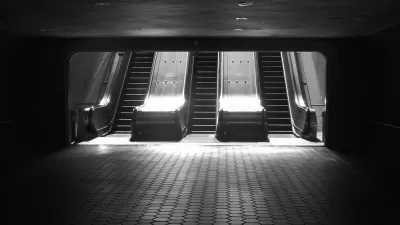In an unusual showing of agreement by both houses, it would appear that Congress will terminate funding for HSR in a bill that authorizes funding for the transportation department next year. The House hears the bill Nov. 17; Senate the next day.
The bill marks "an end to the president's misguided high-speed rail program, but it is not the end of American high-speed rail," said Rep. Bill Shuster, R-Pa., chairman of the House Transportation and Infrastructure Committee's railroad subcommittee.
The House Republicans indicated preference for the dense Northeast Corridor as a line likely to receive future HSR funding should it be authorized as opposed to the much broader application that President Obama conceived. Funds currently allocated would not be rescinded assuming that they meet their deadlines. In California, that nation's only planned HSR project after Florida rejected their federal funding, over $3 billion is at stake from the current fiscal year. Construction must begin next year in the Central Valley.
It is still possible for HSR projects to receive future funding from existing transportation funds such as the the Transportation Investment Generating Economic Recovery, or TIGER Discretionary Grant program program that will be funded. Not so lucky was the Sustainable Communities Initiative as reported by Streetsblog's Tanya Snyder:
"TIGER got $500 million. The House had zeroed it out altogether. The Senate, which had provided for $550 million, clearly won the day on this one. It includes language prioritizing rail, highway, and transit projects that improve or expand existing systems, rather than building new ones."
"Another big loss: the– HUD's contribution to the interagency Partnership for Sustainable Communities – has been eliminated. "The Partnership for Sustainable Communities is one of the federal government's most effective tools," said Geoffrey Anderson of Smart Growth America in response to the cut. "
FULL STORY: Congress About To Kill High-Speed Train Program

Maui's Vacation Rental Debate Turns Ugly
Verbal attacks, misinformation campaigns and fistfights plague a high-stakes debate to convert thousands of vacation rentals into long-term housing.

Planetizen Federal Action Tracker
A weekly monitor of how Trump’s orders and actions are impacting planners and planning in America.

In Urban Planning, AI Prompting Could be the New Design Thinking
Creativity has long been key to great urban design. What if we see AI as our new creative partner?

King County Supportive Housing Program Offers Hope for Unhoused Residents
The county is taking a ‘Housing First’ approach that prioritizes getting people into housing, then offering wraparound supportive services.

Researchers Use AI to Get Clearer Picture of US Housing
Analysts are using artificial intelligence to supercharge their research by allowing them to comb through data faster. Though these AI tools can be error prone, they save time and housing researchers are optimistic about the future.

Making Shared Micromobility More Inclusive
Cities and shared mobility system operators can do more to include people with disabilities in planning and operations, per a new report.
Urban Design for Planners 1: Software Tools
This six-course series explores essential urban design concepts using open source software and equips planners with the tools they need to participate fully in the urban design process.
Planning for Universal Design
Learn the tools for implementing Universal Design in planning regulations.
planning NEXT
Appalachian Highlands Housing Partners
Mpact (founded as Rail~Volution)
City of Camden Redevelopment Agency
City of Astoria
City of Portland
City of Laramie



























